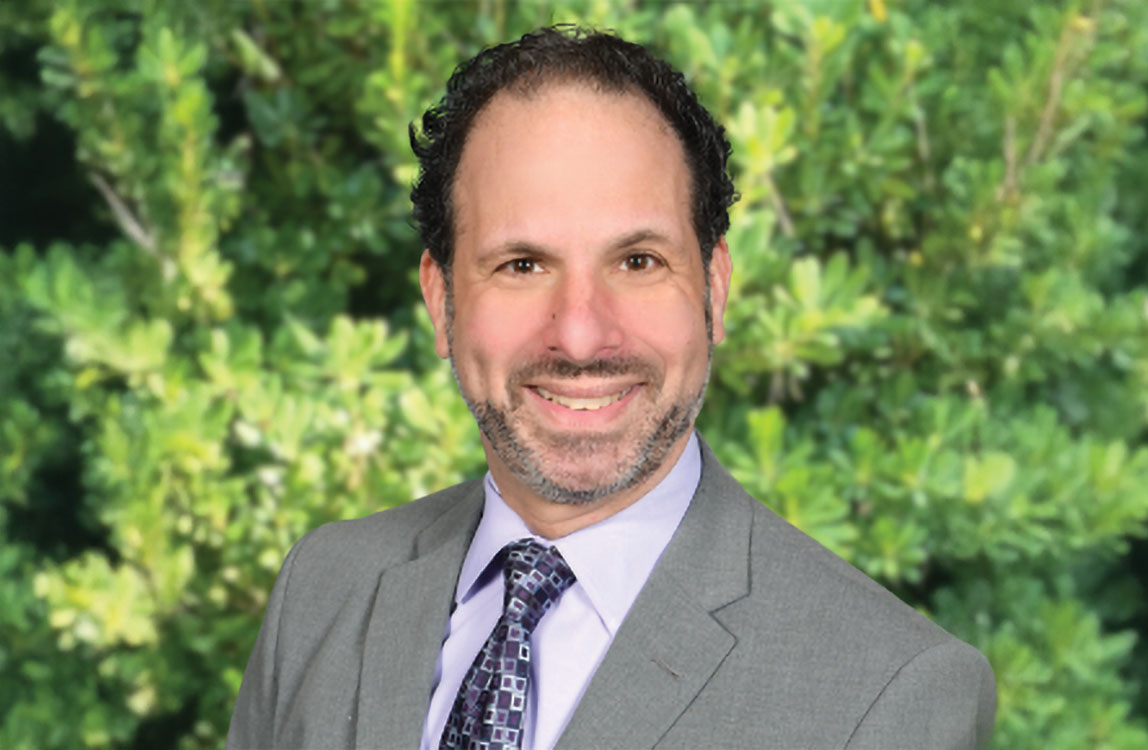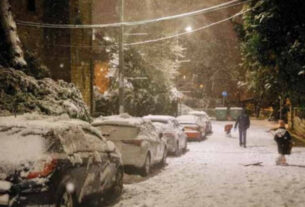It’s been 14 years since Rabbi AdaM Schaffer arrived at HaMakom (né, Temple Aliyah) to become director of the Jewish Learning Cooperative, the religious school. An educator for most of his adult life, the Washington, D.C. area native was asked if he ever considered becoming a full-time teacher. “We know the word rabbi/rav comes from the notion of being a teacher,” he said. “I always have seen them as one and the same.” He knew that whatever direction his rabbinate would take, it would involve education, either as a formal job description or an aspect of a different job.
He explained that “what really sold me was what happened my first summer coming back from rabbinical school. I did eight weeks at Wilshire Boulevard Temple camps. I had gone to an East Coast camp for Jews, but it wasn’t an educational mission camp. So I never had seen the magic Jewish overnight camping can bring,” he said, smiling at the memory. “Those eight weeks utterly changed my life.”
That smile only widened when he reflected on “the incredible joy that all of the children and the counselors — more importantly — had for living their Jewish lives every day in an immersive environment. I couldn’t help but think how amazing this could be for a career.”
In Rabbi Schaffer’s dream, every day would be like this. But in real life he quickly realized that “part of what makes camp magic is that it does not happen that way all year around.” And that the camp director’s job wasn’t what he was looking for. Schaffer could not see himself being in charge of recruitment, logistics, management and other details.
Instead, he went for the next best option: being a day school rabbi. “Prior to coming to Temple Aliyah/HaMakom,” (as he refers to his congregation), “I was the rabbi-in-residence at Heschel Day School in Northridge, across from TRZ [Temple Ramat Zion].”
At Heschel, he fell in love with what it was like to be a daily Jewish educator,” he said. “The very first class I met when I came as an intern in the fall of 2004 still is an incredibly special group to me. They adopted me as their teacher — as someone on his way to becoming a rabbi.” (He was in my last year of school.)
Twenty years later, the memory is just as strong. Heschel, he said, was a school where everyone is referred to by his or her first name. Even the Head of School is Shirley or Betty or Larry. The only exception was they called their rabbis Rabbi Jan, Rabbi Elan. Still short of ordination, he wondered what he would be called since he wasn’t yet there as a rabbi. “I was in my last year of rabbinic school,” he said. “In this class, the kids called me Almost Rabbi Adam,” he said with a chuckle.
On the rabbi’s ordination day “at least 12 or 15 kids in that class came to my ordination,” he said with a grin. “All of them stood and applauded when my time came — and I never have forgotten that. On the day after ordination, my students got to come in and call me ‘Rabbi Adam.’
Those students now are in their early 30s. He’s done several of their weddings, and a baby-naming. “I have been very fortunate,” the rabbi said. “Since ordination, I only have been two places, Heschel – and I am starting my 15th year here.”
But does he feel any conflict between being a congregational rabbi and primarily an educator? “Less so in my case,” he said, “because my role here has been director of education. My primary portfolio has been the religious school, and now the preschool, working with the children and their parents. For me, there has been no real shift. The only change is that I have become more expansive in who I get to work with. All of us are on a path to Jewish education.” What does he mean about becoming more expansive? That he’s “not just responsible for what happens in the classrooms of religious school,” he said. “That was the main focus when I started here.”
He has come to learn that “the real value is going beyond just that simple piece — getting to be a part of the lives of the children and their families,” he said. “The real joy of being here, of being a rabbi, is to be a part not just of your students’ lives but of the whole family, developing connections, being partners with them – partners with parents in helping raise their kids, partners in helping them on whatever spiritual search they may be on and partners in making their Jewish experience meaningful to them in ways they help co-create.”
One of Rabbi Schaffer’s important goals is for his students to be able to craft and help them grow in their own Jewish context, empower them to create their own meanings. In Rabbi Schaffer’s view, “the beautiful thing about education is that it is an ever-changing field. Jewish education once focused on ‘whats’ and ‘hows.’ Now, thankfully, the question has shifted to ‘why are these things important?’”
Fast Takes with Rabbi Schaffer
Jewish Journal: Your favorite childhood memory?
Rabbi Schaffer: The family seders we had in my grandmother’s home.
J.J.: Your favorite moment of the week?
R.S.: Shabbat evening blessing my children.
J.J.: If you had not chosen the rabbinate, what would you be doing now?
R.S.: I’ve always had a dream of being a professional sports official, a baseball umpire or hockey referee.




